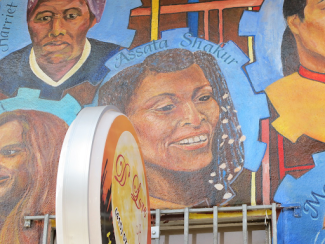
Before Assata, others too were forced to flee the country they loved to escape injustice. Each found refuge in Cuba, where their fight for liberation continued, proving that the struggle for Black freedom has never been bound by borders.
#1: Robert F. Williams - A decorated Marine and NAACP leader in Monroe, North Carolina, Williams believed in armed self-defense against white supremacist violence. After being charged with kidnapping for protecting a white couple from a mob, he fled FBI pursuit and found refuge in Cuba in 1961. There, he hosted his own radio show, Radio Free Dixie, promoting Black self-defense and empowerment.
#2: Nehanda Abiodun - In the early 1970s, Abiodun worked at a Black Panther–affiliated rehab center helping people recover from heroin addiction. But her activism made her a target. Charged in connection with the 1982 Brinks armored-truck robbery, she sought asylum in Cuba during the 1990s. There, she continued her work as a cultural organizer and mentored young hip-hop and rap musicians.
#3: Charlie Hill - A member of the Republic of New Afrika, Hill was accused of killing a police officer in 1971. Fearing for his life, he and two comrades hijacked a plane to Havana. Cuba granted them political asylum. Hill lived there until his death in 2017, never forgetting the movement that shaped him or the people still fighting for freedom back home.
For generations, Black revolutionaries have been forced to choose: fight here or find freedom elsewhere. From Assata to Williams, Abiodun, and Hill, their lives reveal how deeply this country fears Black resistance. Even in exile, they never stopped loving their people or fighting for our liberation.